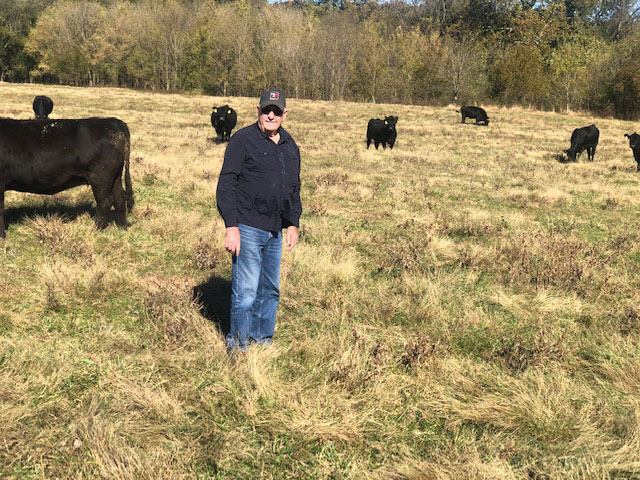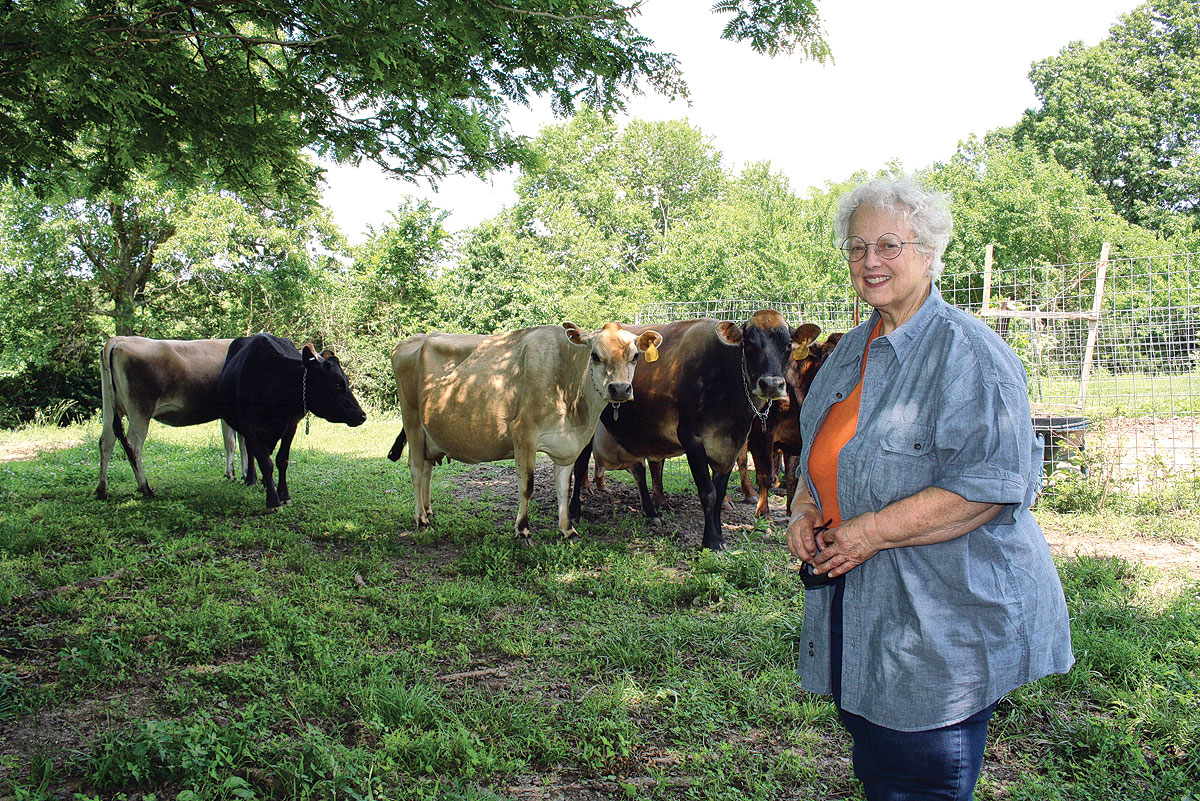 Carl Goodnight feels the Angus female is the most versatile female of all breeds
Carl Goodnight feels the Angus female is the most versatile female of all breeds
Carl Goodnight is a fourth-generation farmer and has been raising cattle for 76 years. He was born on the farm in Carthage, Mo., where he now lives.
He has been farming or running cattle on his land since he can remember, except for the time he served in the Vietnam War.
“Growing up, we raised hogs and raised and milked Jersey cattle,” Carl recalled. “I now run around 75 Angus, depending on the year and own 120 acres.”
Starting out, Carl had five acres and first purchased two or three cows from Elza Winter back in 1987, and then purchased a female from Dean McKibben at the Four State Angus Sale in 1993 or 1994. From then on there have been a few other females added from time to time, but over 90 percent of Goodnight herd goes back to those first females purchased from Elza Winter and Dean McKibben.
Carl is the manager of Goodnight Angus Farm, but his family is all involved in some manner.
“All my kids and grandkids help around the farm,” Carl said “We also have a variety of local kids from the Carthage FFA help us, and it has become a rite of passage of sorts for the Carthage kids to work out here when we are processing cattle.
“I think they like to watch the ‘cattle working show’ and get a hot lunch. I also have some renters that help in exchange for part of their rent.”
The Goodnight family’s favorite part of owning and working on the farm around cattle is the satisfaction of seeing Angus momma cows nursing big, stout calves when the air has a slight chill and the days get shorter.
They know that winter is coming, but there is a lot full of round bales ready for those cows, who will eat hay and lay down and calve again and the circle of life starts anew.
Angus cattle were chosen on the Goodnight Angus Farm because the Angus cow is the most versatile beef female available, Carol said.
“You can breed her straight and make a very usable calf, or you can cross her with Charolais, Simmental, Hereford or an eared breed and make a very usable calf for your specific needs,” he explained. “But, when the chips are down and you need to get back to basics, the Angus cow will always be the go-to female in Southwest Missouri for a beef cattle operation.”
There is no such thing as a “perfect” cow, heifer, bull or steer, Carl said, but he feels Angus cattle are the best option.
“In fact, if you can be average in every measurable trait with cattle, you are probably doing well,” Carl said. “The Angus cow does that for us, because there was a time that I sold all my cattle.
“I like to think of this agricultural prison as my personal Shangri La when everything was sold. The great poet Corb Lund said it best, everything is better with some cows around.”
Goodnight Angus Farm primarily sells bred heifers through the Show-Me Select Heifer Program, bred cows through special cow sales at the Springfield Livestock Marketing Center, and they retain ownership on their steers through the Tri-County Steer Carcass Futurity.
Goodnight steers are sold as fed calves, so they are marketed at about 15 to 16 months. Heifers are sold as heavy bred heifers, about 22 months of age. The majorty of the herd consists of 3- to 7-year-old females. If a cow gets over 7 years at the Goodnight Angus Farm, she has a home until she comes up open. Carl said those are rare females and if they last that long than they are usually part of the family by that time.
Breeding season at Goodnight Angus Farms normally synchronizing and AIing heifers, and some cows around the end of March or first of April. The remainder of the females will be exposed to herd bulls around the middle of March.
Calving season for the Goodnight farm starts around the middle of December and lasts until the end of February.
Any females that haven’t calved by the end of February are culled, unless there is a very good reason to retain them, and it better be a very good reason.
Weather is a critical factor when it comes to weaning calves.
“If we are short of grass, we will wean as early as late July, and if we have a wet summer, we will keep the calves on the cows until late September.”
Angus Goodnight Farm hopes to see their farm grow as much as their family’s love grows for their cattle and farming.






